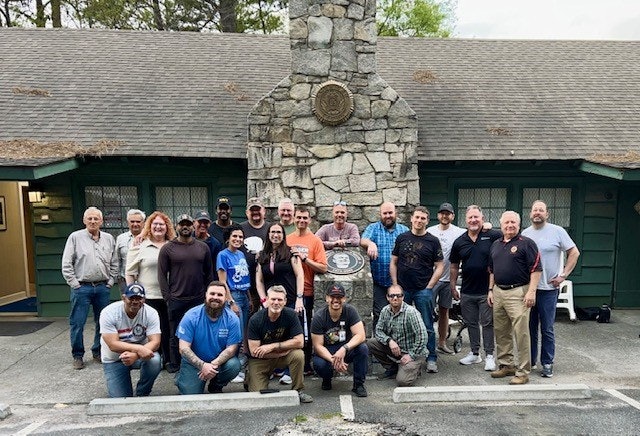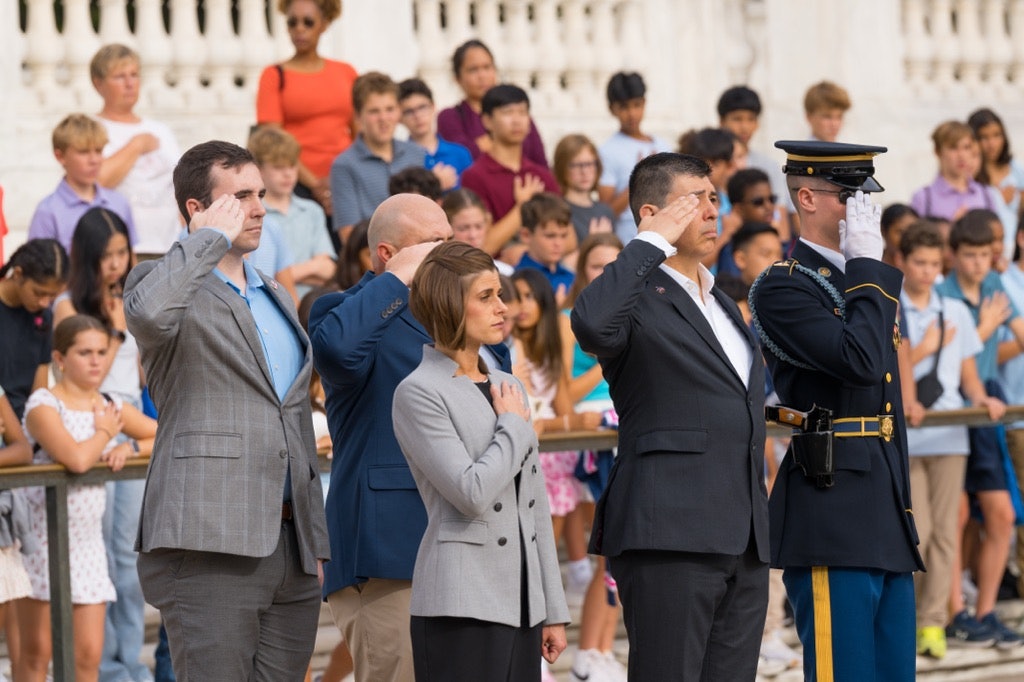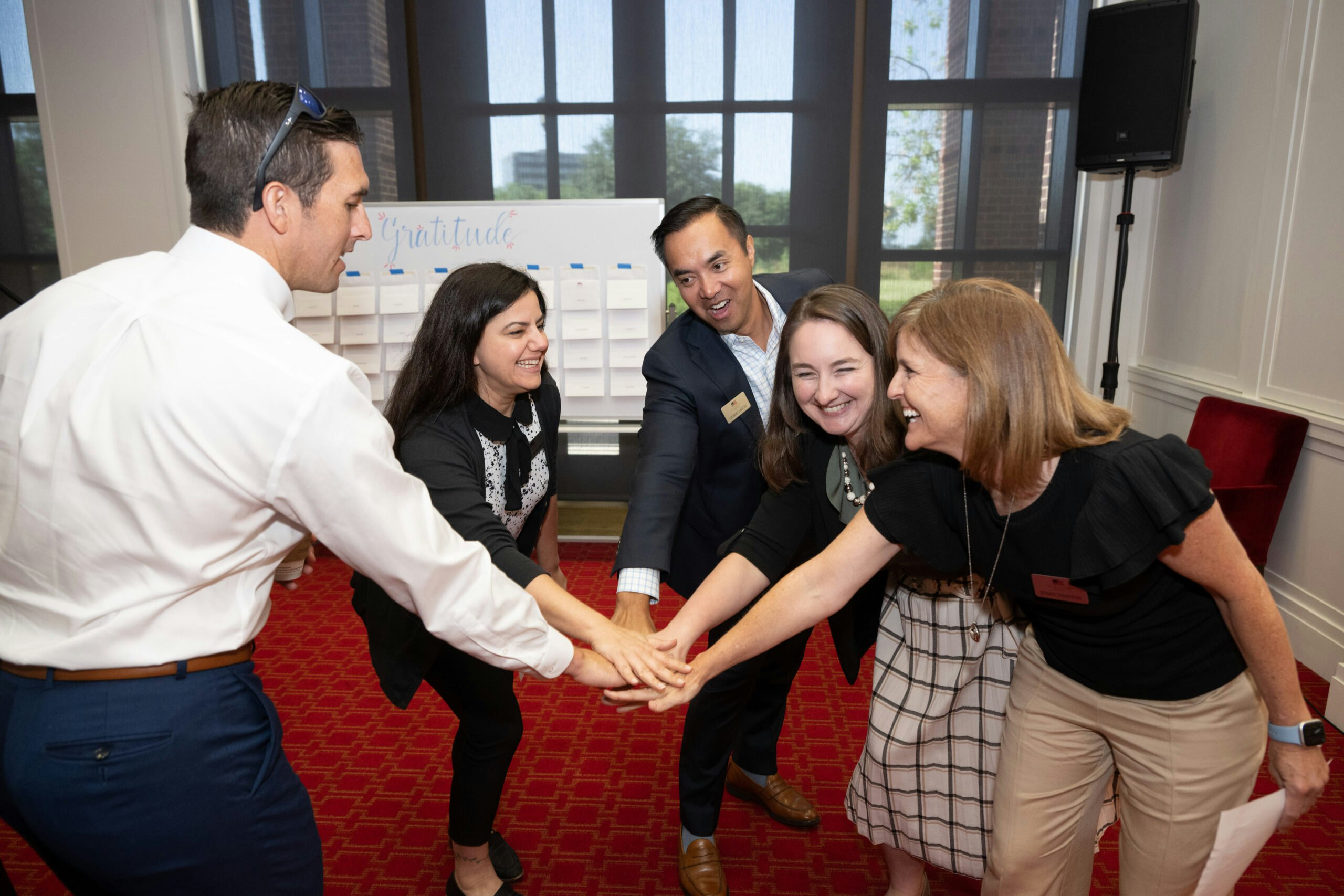The Bush Presidential Center has created a resource to help post-9/11 veterans who are looking for help from various nonprofit services including information and questions to ask when looking or applying for assistance.
HOW TO NAVIGATE EMPLOYMENT SERVICES
Employment & Job Fairs
Since 9/11, the private-sector has mobilized to aid veterans seeking employment by hosting job fairs to connect veterans with employers seeking to hire veteran talent. While many veterans have benefited from these events, many report frustrations with some job fair programs.
The key is to fully understand the nature of the job fair — they are not all created equal — and to prepare and set expectations accordingly. Leading practices often include:
- Having veterans submit resumes before the event for pre-screening
- Requiring that employers come to the event with relevant and specific job openings
- Employers conducting on-site interviewing and/or interview preparation sessions with veteran applicants
Questions To Ask When Selecting A Job Fair
- If your organization has held a job fair in the past, can you share information about past employment outcomes stemming from the prior event?
- How many employers will be represented? How many hires do you anticipate being made on site? Within 90 days?
- Will I submit my resume prior to the job fair, and how will it be used? Will it be shared with employers prior to the job fair to set interviews at the event? Will it be used to screen for matches to specific opportunities or companies?
- Do any of the companies attending have veteran-specific hiring practices and processes, as opposed to just generally expressing interest in hiring veterans? If so, which companies?
- What percentage of companies attending the job fair have specific positions they are looking to hire for, as opposed to general recruiting and networking?
- Are companies conducting on-site interviews?
Resume Writing & Interview Preparation
Many veterans struggle to communicate their military skills and experiences into language that an employer can understand. Many organizations exist to bridge this divide. Some indications of service quality include the level of one-on-one interaction, post-training support, and the relevant experiences/background of the service providers and counselors.
Questions To Ask When Selecting Your Nonprofit
- Can you describe the process of assisting veterans with resume writing and interview preparation?
- Is there a cost to use the services? If so, how do they compare to the free services offered by other organizations, including the Transition Assistance Program or Workforce Development Programs?
- What are your outcomes for those you have served in the past? How many veterans have you served and do you know if they found employment after receiving your services? Do you have testimonials from prior participants?
- Is the resume assistance personalized or will you provide general training to a broad audience? If general training, is there an opportunity for individual feedback and resume review?
- Can you describe for me the kind of interview training you provide? Are your trainings taped or recorded to review afterwards with a counselor or interviewer? Will I receive a copy of the recording? What type of feedback will I receive?
- How long does the interview preparation take? Is it personalized and tailored specifically to a certain job opening, or to my experience and qualifications?
- In addition to resume and interview training, do you help with my actual job search?
- Do you have a database of companies or workforce agencies and other organizations you will link me to for specific job opportunities?
Career Mentorship/Career Planning
Many veterans or transitioning service members have difficulty determining what their next steps should be. From networking, negotiating salary and benefits, to learning how best to integrate into corporate culture, many nonprofits exist to help veterans advance and manage their career path. However, veterans should be wary of any organizations charging for such services.
Questions To Ask When Selecting Your Nonprofit
- Does your organization have experience working with veterans?
- Does your staff have vocational/career counseling experience? Can you describe the mentorship process?
- Do you have previous participant testimonials or other evidence of the outcomes of your mentoring program?
- Should I provide a resume or other background information to the mentor? How will I communicate my goals to my mentor?
- How will I be paired with a mentor that is right for me? What is the process if my mentor or I don’t feel it is a good match?
- Will someone from your team manage our relationship, or is it my responsibility to ensure that I am communicating with my mentor? Do the mentors have to report back on our interactions?
- How does the mentoring relationship end? Is there a formal close-out process? What is that process?
- During or after mentoring, will I have the opportunity to be matched with employers who are seeking to hire program participants?
Workforce Development Training
For some veterans, regardless of their station in life, some type of retraining may be necessary as they plot out their steps toward their next job. Workforce development training helps individuals hone the basic skills of entering the workforce or those required to transition to a new type of employment. For this population, workforce development centers can be found across the country operated by nonprofits and government agencies.
QUESTIONS TO ASK WHEN SELECTING YOUR NONPROFIT
- Can you describe any training programs that you provide or that are required at this nonprofit? How are they delivered? In person? Online? Both?
- Are these programs for which I can get a certification? If so, how long do they take? (How many hours per week, and how many weeks on average? How much do the programs and certifications cost? Are there training dollars available from another source or is the training and/or certification cost my responsibility? Have they been approved for GI Bill benefits, and can I use government benefits or do I need to pay out of pocket?
- Are there any prerequisites for certification? If so, is the certification recognized by my desired industry?
- Is the training job-specific to a particular vocation or employer?
- Does this organization have a strong network of employers willing to hire people with backgrounds similar to mine who complete these training programs?
- Can you share a list of your employer or other organizational referral partners?
Entrepreneurship Training
For those veterans focused on self-employment opportunities (such as starting their own business or nonprofit organization), there are a range of organizations providing entrepreneurship training and resources. These programs typically range from classroom instruction, online training, business plan support, business plan competitions and mentorship by former business executives. Quality is most often determined by the qualifications of the instructors and the nature of program instruction (high-versus-low-touch).
Questions To Ask When Selecting Your Nonprofit
- What percentage of program participants have started a business? Do you know what percentage of those have been in business for more than five years?
- Do you know the average business income and personal income of program graduates?
- What percentage of the business owners have employees? On average, how many employees do they have at their business?
- After this training, do I get any type of certification or credential?
- What percentage of your instructors are business owners or business school faculty?
- What are the requirements/prerequisites (if any) required for this training?
- Is there a cost associated with this? Can I use government benefits or do I pay out of pocket?
- Can your organization connect me with a mentor to guide me through the early phases of business ownership?
- Can your organization help me find necessary financial capital? Do you have relationships with lenders at all size levels? (e.g., microfinance, small business lending, and larger capital needs?)































